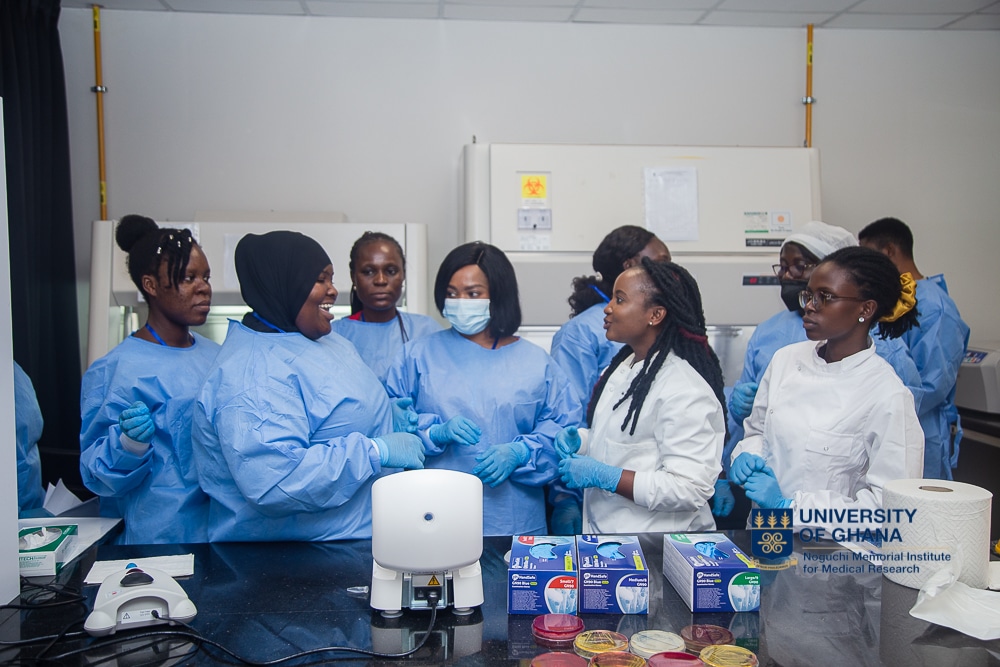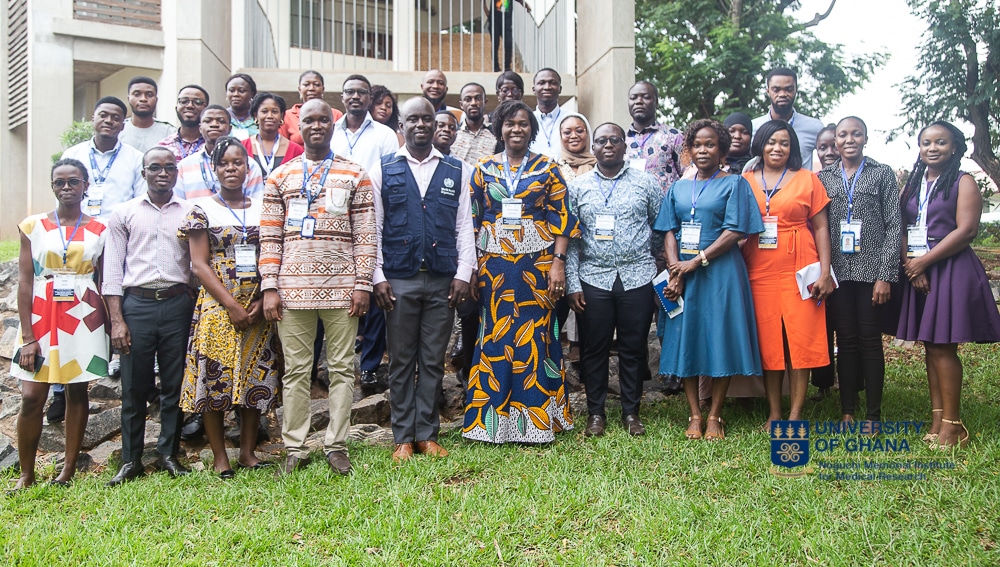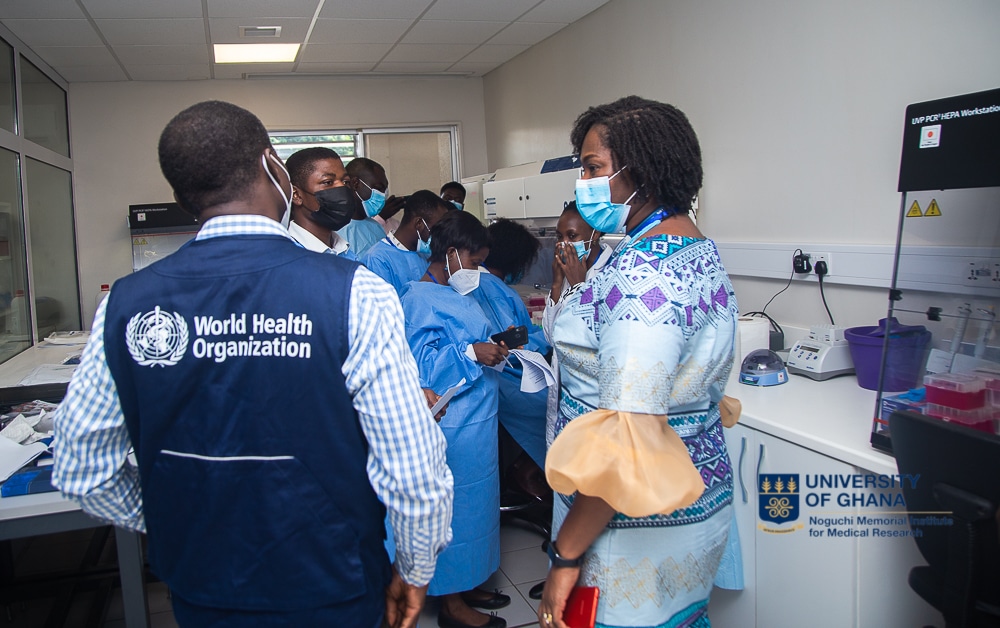Surveillance of bacteria species that are resistant to a wide range of antibiotics is key in tackling the menace of antimicrobial resistance (AMR), a situation that is known to lead to limited therapeutic options and huge economic cost to infected patients. Knowing the entire genetic makeup (blueprint) of AMR bacteria by using a method or process known as ‘whole genome sequencing’ (WGS) helps to understand the ‘wicked’ pathogens better, and enable scientists to develop more effective surveillance strategies, novel diagnostic tools, and vaccines; to deal with the threat of AMR.
WGS is scarcely used in investigating AMR in low-income countries (unlike in developed countries). This is because only few laboratory staff on the African continent (including Ghana) have the requisite knowledge and skills to utilize WGS for AMR surveillance.
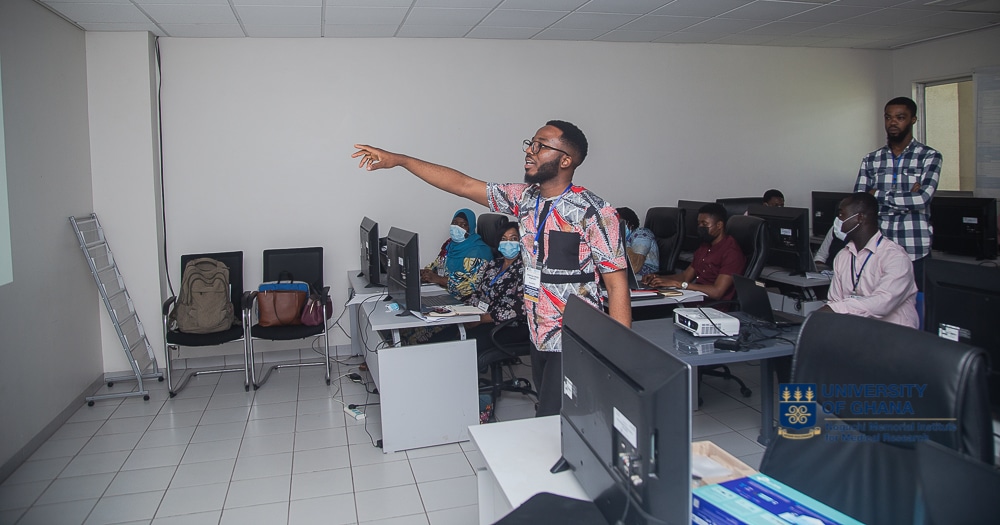
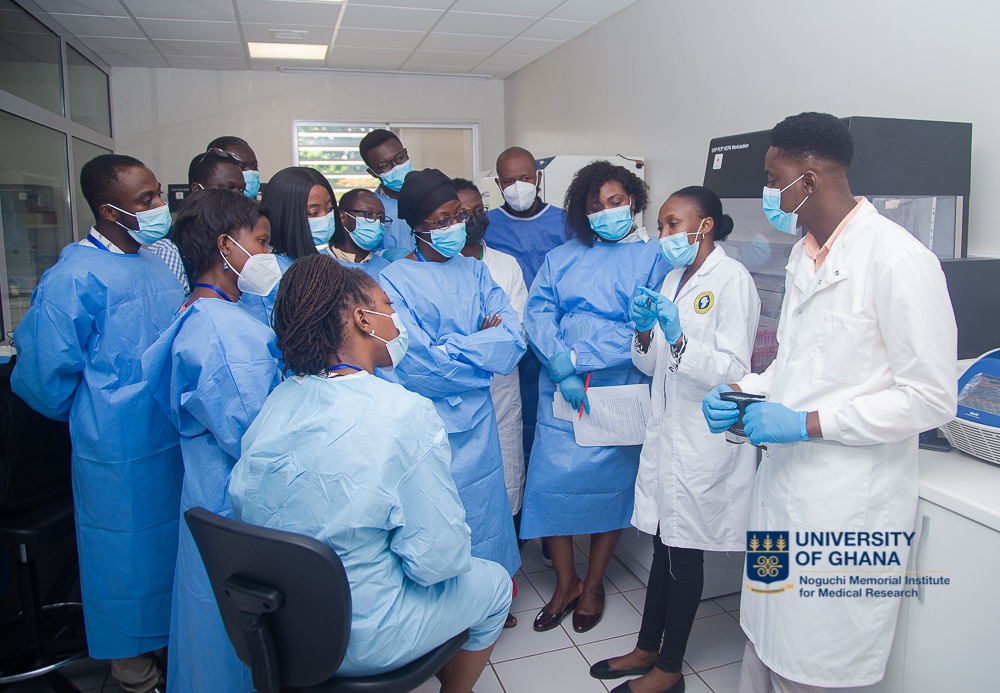
In partnership with the World Health Organization (WHO), Noguchi Memorial Institute for Medical Research (NMIMR) organized a 5-day Workshop on ‘Whole Genome Sequencing and Surveillance of Antimicrobial Resistance in Bacteria’ to build capacity for genomic AMR surveillance. Workshop participants were representatives from the Ghana Tricycle project, biomedical scientists, and microbiology students; from various institutions: Council for Scientific and Industrial Research’s Water Research Institute, National Food Safety Laboratory for Animal Health – Veterinary Services Division, St Patrick’s Hospital, Korle-Bu Teaching Hospital, LEKMA Hospital, Medical Microbiology Department, West African Centre for Cell Biology of Infectious Pathogens, University of Energy & Natural Resources – Ghana, and Noguchi Memorial Institute for Medical Research.
Trainees were equipped with theoretical and practical knowledge and skills for: a) DNA extraction, purification and quantification, b) DNA library preparation and quantification, c) Loading of DNA libraries and sequencing on Miseq and MinIoN platforms, d) Prediction of bacteria species, detection of clones, AMR genes/virulence genes, and phylogenetic analysis of genomes using free online tools/platforms.
The feedback received from participants was positive, and the participants are all looking forward to applying the knowledge and skills gained; in their ongoing and future projects, to support AMR surveillance
The workshop was facilitated by Dr. Beverly Egyir, Dr. Bright Adu, Mr. Christian Nyantakyi, Mr. Grebstad Rabbi-Amuasi, Miss Quaneeta Mohktar, Miss Felicia Owusu, Mr. Bright Agbodzi, Blessing Kofi Adu Tabi, and Mrs. Angela Appiah-Kubi
